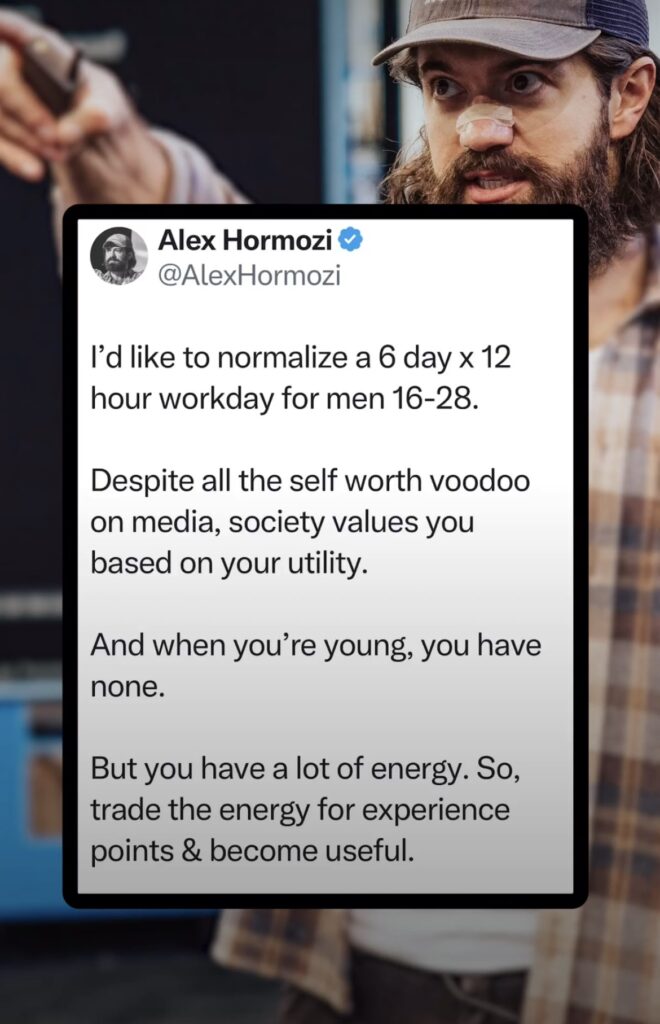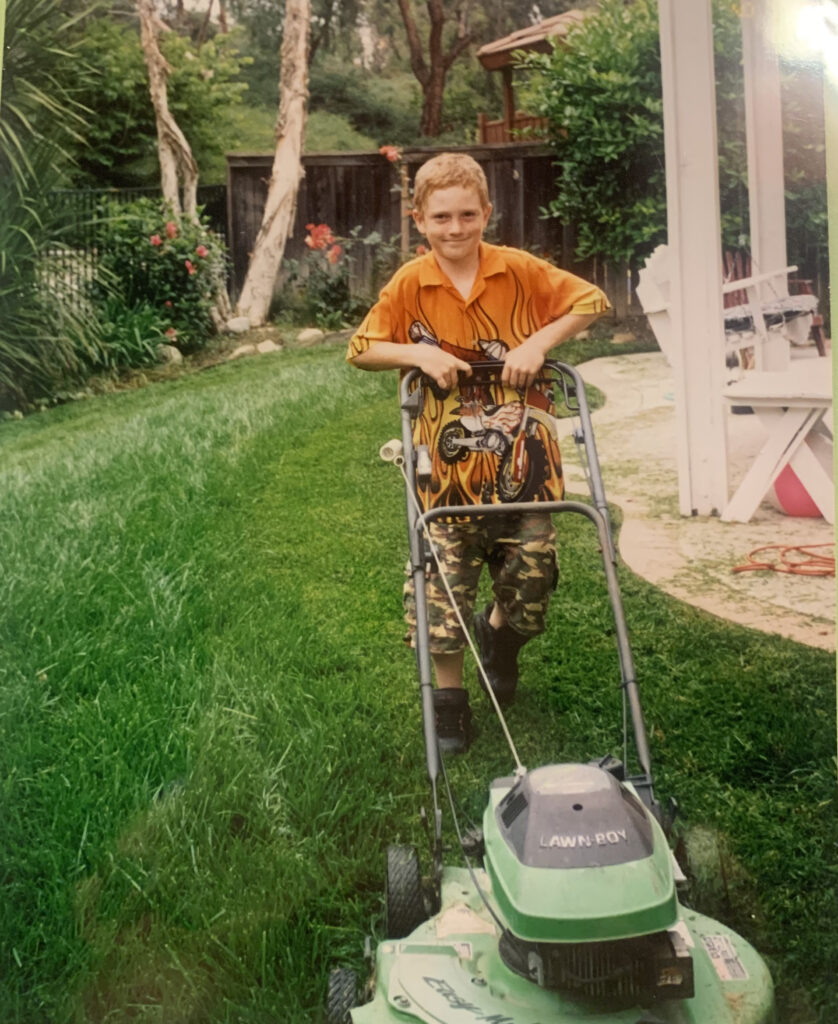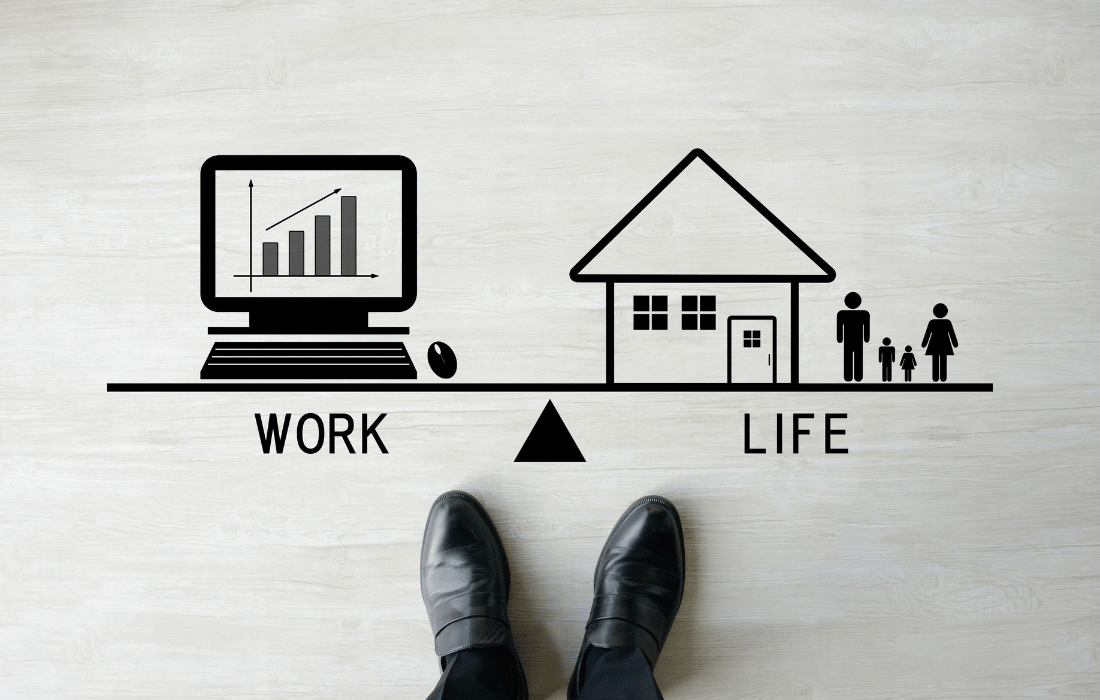In recent years, the conversations around hustle culture and work-life balance have reached a fever pitch. Social media is flooded with influencers preaching the gospel of relentless work and embracing the grind, while others advocate for a more “self-care-frst”, relaxed approach to careers. This shift has led many of my peer millennials and younger generations to view every inconvenience, stress, or lack of purpose in their work as a negative thing. These two narratives have become central to how many of us think about our careers and personal lives. As someone who values both hard work and rest, I find myself pondering these conflicting ideologies more and more.
Before diving into this discussion, let me briefly share that as a Christian, the Bible is what guides my perspective on these topics. I mention this because, unlike my usual health-related articles grounded in scientific research, this post draws heavily from biblical teachings. If you’re still with me, let’s break down how we can navigate “modern work culture”, and maybe I can even help encourage you to view your work from a different perspective.
The Rise of Hustle Culture: The Allure and the Pitfalls
Hustle culture glorifies the grind. It’s about working longer, harder, and faster. It’s about being the first to arrive and the last to leave. It’s a badge of honor to be sleep-deprived and stressed out because it shows you’re dedicated. The mantra is simple: the harder (and smarter, obviously) you work, the more successful you’ll be.
This culture is not without its merits. There’s something inherently admirable about the hustle mentality. It promotes discipline, perseverance, and a relentless drive to achieve one’s goals. In a world where many are content to do the bare minimum, hustle culture pushes individuals to strive for excellence.

Alex Hormozi recently posted that he’d “like to normalize a 6-day x 12-hour workday for men 16-28.” This perspective highlights the importance of leveraging youthful energy to build skills and gain experience.
The High-Performance Mentality
I couldn’t agree more with Hormozi’s perspective for young men. Our younger years are prime for building skills, gaining experience, and laying the groundwork for future success. During this time, working long hours can be immensely beneficial. It’s a period where energy and resilience are at their peak, making it an ideal season for intensive effort.
Proverbs 14:23 reminds us, “In all toil there is profit, but mere talk tends only to poverty.” This highlights the value of hard work, especially when young and able.
The Costs of Unchecked Hustle
However, the dark side of hustle culture is its tendency to consume every aspect of life, often at the expense of health, relationships, and overall well-being. Many individuals fall into the trap of believing that their worth is solely tied to their productivity and financial success. This relentless pursuit can lead to burnout, stress, and even serious health issues.
Cal Newport, author of Deep Work, argues that constant business and distraction lead to a decrease in our ability to engage in meaningful, focused work. He suggests that “Deep work is necessary for achieving your best performance and making significant progress in your field”.
Moreover, history is replete with examples of how ambition and workaholism have driven humanity to achieve great feats. The industrial revolution and technological advancements were all fueled by relentless ambition. Yet, this same ambition can also lead to ruined families, broken relationships, and compromised health. Our health is all we have in the end, and health is true wealth.
The Myth of Work-Life Balance
On the flip side, the concept of work-life balance has also gained traction. This idea suggests that we can, and should, achieve a perfect equilibrium between our professional and personal lives. While this sounds ideal, it can be misleading. Life is rarely perfectly balanced. There are times when work demands more of our energy and attention, and times when personal life takes precedence.
In its extreme form, the pursuit of work-life balance can lead to a sense of failure whenever the scales tip too far in one direction. It can create an unrealistic expectation that we should always be able to manage everything perfectly and not feel overwhelmed. This level of thinking can be just as damaging as the relentless grind of unchecked hustle culture.
The Reality of Seasons
In reality, life is better understood through the lens of seasons. There will be times when work demands more of our energy and attention, and that’s okay. Similarly, there will be seasons when family, rest, and personal pursuits take precedence. The key is to recognize these seasons and embrace them fully.
King Solomon wrote in Ecclesiastes 3:1 that, “For everything there is a season and a time for every matter under heaven.” This passage captures the essence of what I believe: there are seasons in our lives where hard work and hustle are crucial, and there are seasons where rest and enjoyment are equally important. However, it’s not an equal balance. There will always be more work than play, and that is fine by me.
My Journey: Seasons of Hard Work

Reflecting on my own life, I’ve had years where I worked tirelessly, driven by ambition and the desire to secure a better future. I was always ambitious as a kid and wanted my own money, so when I started mowing lawns in the neighborhood at 8 years old, selling lemonade to buy my first scooter, washing cars, doing construction in high school, and many other odd jobs, I had no idea it was instilling a work ethic that would serve me well. At the time, I just liked having money in my pocket.
In my early twenties, I hustled hard, often working multiple jobs and long hours. This season of intense effort was necessary for building my skills, gaining experience, and setting a foundation for future success.
And to be honest, I’m still hustling and don’t plan on slowing down anytime soon. With my 30s around the corner, this is the time when I must continue to keep my head down to build a beautiful life for my family.
There have been times, however, that I’ve experienced burnout. I didn’t know how to deal with it for a long time, and it definitely has impacted my health. This is why I am passionate about equipping the “working man” with the tools to revitalize his health and recharge daily so he can have a full cup to pour into his work and life.
Proverbs 21:5 states, “The plans of the diligent lead surely to abundance, but everyone who is hasty comes only to poverty.” I can tell you this: my diligence during specific years has led to significant growth and opportunities for me as I grow and learn. I’ve learned that making money overnight doesn’t work 99.9% of the time, and the .1% of the time it does work, there is a high chance that the earner will not be mature enough to handle it. Look at the loterry winners who go broke. When you build wealth over time, you build vision for life, discipline, valuable experience, skills, and much more. I plan on “working” in some regard for the rest of my life.
The Dangers of a Misguided Work-Life Balance
While the idea of work-life balance seems well-intentioned, it does have its pitfalls. Encouraging a laid-back approach can sometimes lead to a poor relationship with work and struggle. Young people may develop a mindset where they avoid challenges and hard work, fearing stress and discomfort.
Referencing the Bible again, the book of Proverbs offers many warnings against laziness and the consequences it brings:
- “Love not sleep, lest you come to poverty; open your eyes, and you will have plenty of bread.” (Proverbs 20:13)
- “I passed by the field of a sluggard, by the vineyard of a man lacking sense, and behold, it was all overgrown with thorns; the ground was covered with nettles, and its stone wall was broken down. Then I saw and considered it; I looked and received instruction. A little sleep, a little slumber, a little folding of the hands to rest, and poverty will come upon you like a robber, and want like an armed man.” (Proverbs 24:30-34)
- “Slothfulness casts into a deep sleep, and an idle person will suffer hunger.” (Proverbs 19:15)
- “Whoever is slothful will not roast his game, but the diligent man will get precious wealth.” (Proverbs 12:27)
I’m a millennial, and the reality is that many of our younger generations in the West are extremely lazy. It’s not always their fault, as our society sadly breeds this. However, countless young men and women are out there grinding and making something of themselves at an early age in a truly admirable way. Their utility will pay them back dividends for the rest of their lives. Their kids and spouses will be happy they learned to enjoy the struggle and toil of work.
King Solomon, the wisest man to ever live, wrote in Ecclesiastes: “There is nothing better for a person than that he should eat and drink and find enjoyment in his toil. This also, I saw, is from the hand of God” (Ecclesiastes 2:24). Solomon’s wisdom reminds us that finding joy in our work is not only possible but a divine gift. It highlights the importance of embracing both labor and leisure as essential parts of a fulfilling life.
Embracing the Middle Path
Many might say, “Well, isn’t what you are saying just another way of advocating for work-life balance?” I understand the confusion, but let me clarify. The term “work-life balance” has been hijacked by those who have created a mentality among the youth to feel victimized by the “system” and lazy, while they haven’t contributed anything to this system.
What I’m advocating for is not about avoiding hard work or striving for a perfect equilibrium. Instead, it’s about recognizing the natural ebb and flow of life and understanding that there will be seasons where we work ourselves to the bone, and much more than a good night’s rest can make up for. This is the way of the world and the human experience. There is suffering, pain, and work to be done. However, this reality only amplifies the importance of tapping into holistic practices to promote longevity in our lives, careers, and relationships.
By embracing a middle path, we acknowledge that hard work is inevitable and necessary. Yet, we also recognize the critical need for rest and holistic self-care to sustain our efforts over the long haul. This approach is about playing the game of life wisely, understanding that while we may often work harder than we rest, integrating practices that support our well-being is essential for maintaining a balanced and fulfilling life.
Practical Steps to Achieve Balance
Here are some practical steps to embrace the seasons of work and rest:
Set Clear Goals: Define what you want to achieve in both your current season and the long term. During intense work periods, set specific professional goals. During rest periods, prioritize personal and relational goals.
Prioritize Health: Regardless of the season, make health a non-negotiable priority. This includes regular exercise, a balanced diet, and sufficient sleep.
Schedule Downtime: Even in the busiest seasons, schedule regular downtime to rest and recharge. This could be as simple as taking short breaks during the day or planning a weekend getaway.
Reflect and Adjust: Regularly reflect on your current season and adjust your priorities as needed. Be flexible and open to change.
Seek Support: Surround yourself with supportive people who understand and respect your current season. This includes family, friends, and mentors.
Proverbs 13:20 advises, “Whoever walks with the wise becomes wise, but the companion of fools will suffer harm.” The company we keep greatly influences our ability to balance work and life.
Conclusion: The Wisdom of Seasons
In conclusion, both hustle culture and work-life balance have their place in our lives, but they must be approached with wisdom and discernment. By recognizing the seasons of life and adapting our efforts accordingly, we can achieve a healthier, more fulfilling existence. Embrace the periods of hard work and toil, but also cherish the moments of rest and enjoyment. As Solomon wisely noted, “For everything there is a season, and a time for every matter under heaven” (Ecclesiastes 3:1).
Let’s strive to find that balance, recognizing that our ultimate goal is not just to work hard or rest well, but to live a life of purpose and joy in every season.
Additional Quotes and Supporting Views
Adam Grant, author and organizational psychologist: “Instead of giving up on work-life balance, we need to redefine it. Balance is about counterbalancing, not equality. There will be times when work demands more of your time and energy, and that’s okay, as long as there are also times when personal life takes precedence.”
Arianna Huffington, founder of The Huffington Post and author of Thrive: “We think, mistakenly, that success is the result of the amount of time we put in at work, instead of the quality of time we put in.”
Shawn Achor, author of The Happiness Advantage: “Happiness is not the belief that we don’t need to change; it is the realization that we can. It is also the understanding that our happiness influences our productivity and success, not the other way around.”
By integrating these perspectives, we can better understand the importance of both hard work and rest, and how to navigate the complexities of modern work culture. Now get back to work.












